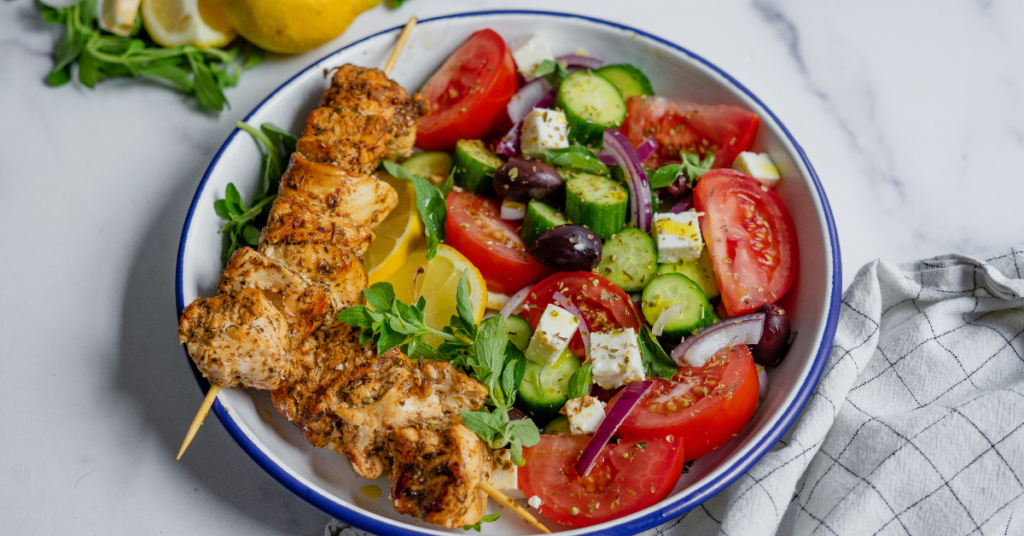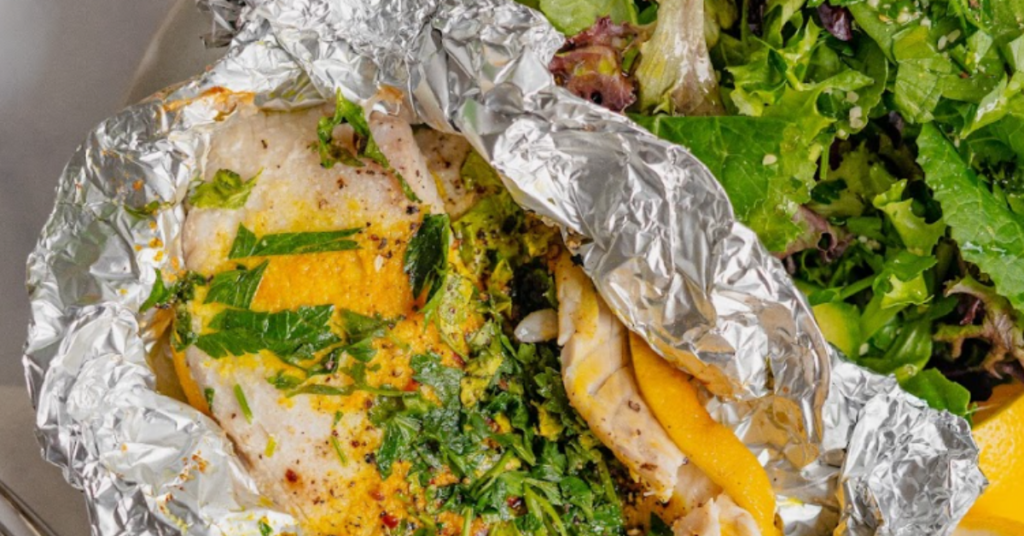Last week we learned all about the ins and outs of sugar. We learned all about where sugar came from, how much of it we’re eating (which isn’t as much as we all assumed), and how sugar can both be worked into and kept out of a diet for long-term success. Naturally, a deep diving look into the world of sugar led to plenty of questions about it’s seemingly evil alter-ego, artificial sweeteners, one of the most hotly debated topics in the world of nutrition.
So let’s talk about artificial sweeteners!
Artificial sweeteners are highly divisive and are torn apart every few months by the media for being related to cancer, diabetes, or other chronic illness. All the while, there are plenty of fitness enthusiasts on Instagram who wouldn’t dare stop posting pictures of to show how much they love Coke Zero. So who has it right?
No matter how vast the Internet and its information resources may be, many dieters are still unsure if they should be worried about artificial sweeteners, wonder if they’re safe, or have questions about their application in a fat loss diet.
A primer on artificial sweeteners:
Artificial sweeteners is really more like a blanket term for a number of individual additives, which can also be known as non-nutritive sweeteners or non-caloric artificial sweeteners. These additives are used primarily as a means to cut sugar usage and save on calories.
A few of the most commonly known artificial sweeteners include:
- Aspartame
- Sucralose
- Saccharin
- Acesulfame – potassium
These are all used to varying degrees to make things like diet sodas, chewing gum, sugar substitutes, gelatin, lower calorie baked goods, and just about anything you find in a grocery store that’s marketed as being sugar-free.
What is the primary use of artificial sweeteners?
Artificial sweeteners provide a zero calorie alternative to foods or beverages that are traditionally packed with sugar. Most sweeteners are anywhere from 80x – 700x as sweet as sugar, so much smaller quantity can be used to provide the same sweetness.
Thanks to that whole zero calorie thing, artificial sweeteners provide a sweet taste similar to sugar, but none of the calories that you get when you go decide to go for the traditional sweet stuff. If someone replaces a higher calorie food or beverage with a zero calorie alternative, not only do they save on calories, they can also start getting more calories from nutritious sources.
Therein lies the main reason people incorporate artificial sweeteners, to begin with. Intuitively, they are an easy way to save on calories. Because as we learned last week, they’re replacing one of the most difficult foods to regulate our intake of with something that’s zero calories.
Why people worry about artificial sweeteners:
There are two big reasons people tend to worry about artificial sweeteners and their health effects:
- Media sensationalism
- Our relationship with food
The more I show up in these blogs every week the more I’m starting to realize I sound like an old hermit who lives up in the hills in some shack and is always griping about modernity, the news, and those damn kids. And while I’ve yet to completely embrace my inevitable future as a hermit, I do bring up media sensationalism for a reason.
Not only are we exposed to a shocking number of ads each and every single day, with a 24-hour news cycle, it’s also vitally important for media outlets to drum up as much buzz about a topic as possible. This leads to increasingly sensational headlines that take scientific research completely out of context. There’s no better poster child of this happening that most headlines you might read about sugar or artificial sweeteners. The natural narrative (anybody catch what I did there?) is already that things are dangerous, so it’s much easier to write headlines and stories that fit within that narrative and get views and clicks than it is to take time to understand the nuance and degree of variability that goes into determining whether our food choices are actually right for us.
(They’re going to be so pissed when they read the studies I link later on in this blog.)
Our relationship with food is a bit murkier. Food is a highly emotional subject and something that we have strong cultural and emotional ties to. This is partly why I’ve never liked it when food is referred to as an innovation or biotech. When we hear those words, the same words that are often used in reference to things like artificial sweeteners, we tend to keep our guard up and remain skeptical. Hearing someone refer to that Coke Zero that we like drinking on Tuesday afternoons as a piece of “food tech” just sounds weird, impersonal, and doesn’t at all sound like something that someone I want to hang out at dinner with would say.
At the same time, in the year 2019, we also have to accept that many of the food products we eat are the products of technological innovation, scientific breakthroughs, and more. That’s especially true with artificial sweeteners. It’s not easy or fun for us to accept the fact that our food may be a scientific innovation, at least when it’s referred to as such.
It’s tough to view these things as real because they are innovations, even though they may be harmless. People often fall prey to the naturalistic fallacy, and that’s especially true when we don’t know much about the topic at hand.
What does the science about artificial sweeteners say?
A big reason we’re all unsure about whether or not our Diet Coke is actually killing us or not is that media headlines have linked artificial sweeteners to cancer, diabetes, and other health issues. They’re not exactly subtle about that linkage, either. One of the most heavily criticized and studied artificial sweeteners is aspartame. Aspartame is also one of the most commonly used artificial sweeteners, with more than 6,000 products in American grocery stores containing the super sweet stuff.
Aspartame was first approved for human consumption by the FDA in 1974. The FDA also set an accepted daily intake, or ADI, at 50mg/kg of bodyweight. Now, here’s one of those things that about aspartame and other artificial sweeteners that’s important to know for us to see where they might fit into our diet. 50mg for every kilogram of body weight doesn’t sound like a whole lot, but a 150 lb. person would need to drink about 20 regular 12 oz. Coke Zeros in order to place themselves at risk of any health issues.
That incredibly high threshold is rarely ever talked about. Instead, most news outlets tend to run with stories that talk about the increase in certain types of cancers such as leukemia and lymphoma thanks to aspartame intake, even though aspartame intake was lower than the ADI.
These headlines don’t quite tell the full story about aspartame and its effects, though. Most of the research done around aspartame and its ties to cancer is done on rodents, and researchers have been talking about how the comparison between rodents and humans is unfair in the case of aspartame since 1984.
But those headlines that stir fear and panic are strong, and in 2006, after multiple major media headlines, the FDA once again reviewed all existing data relating to aspartame, its potential as a carcinogen in rodents, and that application in humans. After review, the FDA confirmed their stance that aspartame “based on more than 100 toxicological and clinical studies regarding the sweeteners safety” is safe for human consumption.
In 2013, the European Food and Safety Administration re-evaluated all existing data regarding aspartame and its potential as a carcinogen, and confirmed the stance that aspartame is not a carcinogen.
As far as the latest science is concerned, artificial sweeteners – especially aspartame – are completely safe for human consumption. If someone is coming close to reaching the 50mg/kg ADI limit, I would venture to say they have bigger dietary issues to worry about than their artificial sweetener consumption.
Artificial sweeteners, glucose tolerance, and the gut microbiome
One of the large knocks against artificial sweeteners recently has been that they might impair glucose tolerance or harm the gut microbiome. A recent study in Nature brought attention to this issue.
In the study, a team at the Weizmann Institute in Israel set up an 11-week trial in which they fed mice three types of water, each containing a 10% solution of different artificial sweeteners: one with aspartame, one with saccharin, and one with sucralose. After 11 weeks, all the mice showed higher fasting glucose levels than mice who had been drinking normal water or water with a 10% glucose solution.
The research team then went a step further and depleted the gut microbiome of these mice via antibiotics in order to see if this played a part in the glucose intolerance. When the gut microbiome was depleted, glucose intolerance disappeared. If the bacteria-depleted mice were transplanted with bacteria from a rodent who had been ingesting saccharin, the glucose intolerance returned.
The research team believes this is due to the fact that most artificial sweeteners aren’t digested through the normal GI tract. Instead, they go straight to the intestine, where they can encounter and influence the makeup of our gut bacteria.
Furthermore, the research group noticed a high level of certain types of bacteria that they said had been previously linked to obesity in humans.
These results were also replicated in humans. Seven people who didn’t normally consume sweeteners got the highest safe dose of saccharin possible for seven days, which equals about 10 packets of Sweet’N Low. Four of the subjects had markedly worse glucose tolerance by day five. These four subjects also had different gut bacteria to begin with, and ended up with drastically different gut bacteria.
Three sweeteners were studied, the greatest effects were noticed with saccharin, the same stuff as Sweet’n Low. However, sucralose and aspartame both have evidence linking them to depletion of the gut microflora as well.
While I get that it’s easy to read up to this point and think that obviously it’s the artificial sweeteners that are causing unexplained gut issues, it’s important to remember that this is only one single study. One study will never be the definitive word on something, especially something that still has as many questions associated with it as something like our gut microbiome and the impacts of artificial sweeteners. The gut microbiome is kind of like the wild west of research right now. There’s a whole bunch we don’t know about it, a whole lot we’re finding out, and a whole lot about our understanding of gut health that will likely change in the next 10-15 years as more research is done.
The jury is still out until there are larger studies in humans to:
- Confirm the findings of a deleterious effect on the gut microbiome in the context of an otherwise healthy diet.
- Establish whether or not those results are clinically relevant (actually influence body composition or metabolic health in any meaningful way), especially with more reasonable doses of artificial sweeteners. Most of these studies used extremely high doses of artificial sweeteners. While technically in the “safe” limit, few people consume an obscene level of sweeteners on a daily basis. It’s also important to remember that most of these studies are performed on rats, which have metabolic processes that differ from humans.
Who should use artificial sweeteners?
In all the time spent researching for this article, this is easily the most interesting takeaway that I personally wound up coming away with. Given both what the available research and my own personal coaching experience, there are a couple of interesting insights for who should be using artificial sweeteners that I think are worth sharing.
Many people champion a style of intuitive eating. Eating where you’re governed by your own hunger signals, satiation, and more. However, given the research and what we know about reward pathways, intuitive dieters may find that they struggle more with artificial sweetener consumption and the behaviors it influences for a few reasons. The biggest one seems to be how zero calorie sweeteners affect our satiety. Essentially, food or drinks that are sweet but offer no caloric value only partially activate our food reward pathways.
When our food reward system is only partially satisfied, we’re hardwired to seek out more calories later on. This can be a potential issue for intuitive dieters who aren’t tracking calorie intake because they may unknowingly seek out too many calories, and the more we consume something sweet, the more we will crave it. We’re already less than stellar at staying on top of how much we’re consciously eating on a daily basis, and someone who isn’t keeping regular track of their food intake and consuming a few servings of artificial sweeteners on a daily basis might be making that worse on themselves.
A 2007 review of the available evidence shows that most studies report no net change in total calorie intake with artificial sweetener consumption. Basically, you’ll generally compensate for the calories you save by using artificial sweeteners instead of sugar by consuming slightly more calories later in the day.
This could be a positive in its own right if you’re just trying to maintain weight – fewer calories from sugar-sweetened foods with few vitamins and minerals, instead, getting those calories from generally healthier food sources. However, if you’re purposefully using artificial sweeteners in an effort to lose weight, it would probably be wise to track calorie intake to ensure that you are actually eating fewer calories.
The main reason a dieter may use artificial sweeteners during the course of a diet is to satisfy cravings for food he or she loves without providing a major caloric punch. If the athlete is a dieter who tracks calorie intake, they can still track and fill in the remaining calories with nutrient-dense foods, though they may still increase cravings.
For dieters who track their intake, much like Stronger U members reading this, artificial sweeteners may be particularly useful in limited quantities. That’s especially true when it comes to finding low-calorie solutions to solving cravings, having a sweet snack, or more. However, this is entirely up to the dieter. It doesn’t take a long search of the hashtag #IIFYM on a platform like Instagram to find plenty of people who have figured out they can make their food taste sweeter without adding any calories, but have completely missed the point of what it means to eat healthily.
Ultimately, artificial sweetener usage is up to the dieter, but it might be safe to say that given the available research, those who keep track of their diet on a daily basis are set up to more successfully incorporate artificial sweeteners in their weight loss plans.
Artificial sweeteners and weight loss
One of the questions I get a decent bit from particularly curious clients, Stronger U Members, and family friends who just want to be sure their Diet Coke isn’t killing them is where artificial sweeteners can fit into a weight loss plan. Finding a definitive relationship between artificial sweeteners and positive body composition changes is no easy task. There was a recent meta-analysis done in which artificial sweetener consumption is associated with lower body fat levels overall.
Then again, there are also a number of studies that show that artificial sweetener consumption is associated with higher BMI and long-term weight gain, as well as studies showing that artificial sweetener consumption alone doesn’t do much when it comes to dropping weight.
Which is why I’m left to do the very annoying thing and say: we don’t have a definitive answer yet because there haven’t been enough long-term RCTs done to show a causal relationship between artificial sweetener use and weight gain or weight loss.
At least, we don’t from a research perspective. However, from an anecdotal perspective, myself and just about any Stronger U Coach can tell you that people successfully incorporate artificial sweeteners into their diet all the time. Especially when finding ways to have zero calorie snacks, low-calorie sweets, and other solutions that help them indulge in cravings without adding a ton of calories.
Does that mean that we all need to be rushing out to pile on the aspartame to everything we eat? Of course, it doesn’t. It does mean that there probably isn’t anything to be scared of if you do want to incorporate a little bit of them, though. Aspartame, like any artificial sweetener, or any other food product, is perfectly fine in controlled doses. And the beautiful part about Stronger U, or any program that teaches you how to keep account of the things you eat on a daily basis, is that the skills we teach you are the same skills that teach you exactly how to find controlled doses for you and your goals. Both with sweeteners, and with food in general.









